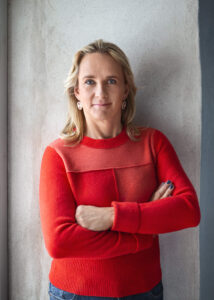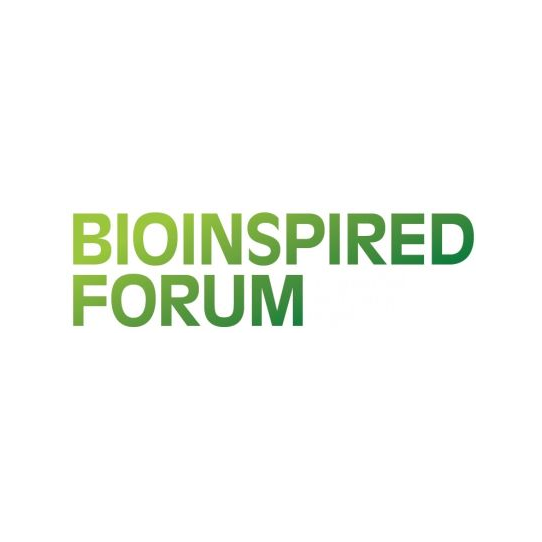Returnable – A Circular System for Reusable Grocery Bags
During the last decade, the steep demand for grocery delivery services has resulted in a skyrocketing use of plastic and paper bags – bags that are rarely reused or recycled. To address this issue, Axfoundation and Chalmers Industriteknik has gathered Sweden’s key actors in the grocery sector. Companies normally competing, such as Axfood, Coop, ICA, Lidl and Svenska Retursystem, are now collaborating to explore what an industry-wide circular solution for reusable grocery bags could look like. The aim is to create a road map that promotes the reuse of delivery packaging and inspires more circular models - contributing to a reduced carbon footprint.

The Issue
In 2023, over 574 million single-use plastic and paper bags were sold in the Swedish grocery retail sector. These bags are often only used once, contributing to a great waste of resources. The paper bags come to a great extent from online grocery deliveries, where the abundance of delivery bags often leads to customer dissatisfaction. Today, actions to solve the packaging issue are mostly focusing on recycling these materials. However, more and more national and international actors are switching from recycling to reuse, to ease the pressure on the extraction of raw materials. This is evident in the governing EU directive PPWR (Packaging and Packaging Waste Regulation), which came into effect on February 11, 2025.

Our Solution
The project Returanble aims to find a practical system solution for reusable bags, primarily for home deliveries where customers have no choice, but also intended for in-store shopping. To achieve this, Axfoundation has brought together key actors, including Axfood, Coop, ICA, Lidl, and Svenska Retursystem, to develop a joint proposal for a deposit-based “borrow bag” that helps customers transition from a linear to a circular flow.
The project’s goal is to contribute to an industry-wide solution for a sustainable circular system of “Återpåsar”, reusable deposit bags. Since 2023, the group has been working to develop a system solution that works across all retailers. This includes a deposit system for the bag, a cleaning process, and a shared logistics solution—all to ensure that the packaging can be reused over and over again.
Beyond addressing customer frustration with single-use bags, a circular borrow bag could also pave the way for and facilitate other deposit-based solutions in grocery retail and other industries’ circular flows on a larger scale.
Through this broad collaboration, the hope is to develop an implementable solution that works regardless of operator. In addition to solving customers’ frustration with disposable bags, a reusable grocery bag can pave the way and facilitate circular flows on a larger scale for other industries.
– Amelie Silfverstople, Project Manager Future Materials
Our Work
Axfoundation has, together with partners, examined the current system for single-use packaging at a macro level. A comprehensive market analysis has been conducted while mapping out the needs of both the industry and customers.
The project has tested several different models for reusable delivery packaging and developed prototypes for this purpose. These prototypes have been tested in two pilots with around 100 customers to iterate on materials, return logistics, and customer interaction.
The next proposed step is a large-scale pilot in a defined geographic region to test the refined bag’s deposit and return logistics in practice.
The 3 Stages of the Project
- A concept was developed for bag deposits, return logistics and industry-wide system operation. This step was funded by Vinnova.
- A prototype for the bag itself and the traceability solution required for deposit bags was explored and developed with funding from RE:source. Practical pilot projects were conducted in two retail chains to enhance customer understanding.
- The project has deepened customer insights into circular models and refined the communication concept with additional funding from Vinnova, while also making further progress in calculating the business and environmental potential of the Returanable solution.
Results
From January to March 2024, the Returnable group conducted tests with reusable bags made of different materials to examine how they function in e-commerce processes. Bags made of extra strong paper, as well as bags made of PP plastic, were dispatched to customers shopping at Coop in Sörböle and Hemköp Djurgårdsstaden in Stockholm. Soft bags made of recycled bedsheet fabric were tested alongside ICA in Hammarby Sjöstad. The test also encompassed the evaluation of traceability solutions such as QR codes and RFID for measuring turnaround times. Concurrently, various cleaning methods were explored to ascertain the durability of the different bags.
The initial response from customers was highly positive. Many appreciate it as an industry-wide solution, relieving customers from an unnecessary pile of single-use bags at home. The tests have generated valuable insights regarding the composition, appearance, and design of the bag, which form the basis for the next version of the bag prototype to be tested in the future.
In May 2024, a new customer insight survey was conducted with over a thousand respondents. The results showed significant interest in the reusable bag (Återpåsen). 57% of the respondents not only want to see the bag available online but also wish to have the option to choose it in physical stores. The business modeling and environmental analysis also indicate positive opportunities.
In the fall of 2024, the business modeling around deposits and pricing was refined, and the communication concept was further developed based on gathered insights.
Lessons Learned and Actions Going Forward
During the first phase of the project, several lessons have been learned about what a sustainable circular system for reusable grocery bags could look like. Four key components have been identified as crucial to find a solution:
The bag: Based on the project’s industry and customer needs analysis, the “borrow bag” needs to be similar to the current paper bag in size and shape and have a material that can withstand multiple cleaning cycles. The bag should also be relatively inexpensive to produce and easy to recycle when it fails to complete more rotations. Based on the previous needs analysis, the material and design of the packaging will be investigated further in 2024, collaborating with Chalmers Industriteknik, the product design agency Boid, as well as several experts.
Deposit system: The project proposes a non-individual deposit per bag, for example based on how Sweden’s efficient deposit system for cans works. The deposit should be activated at the time of purchase and be linked to the bag’s unique ID. This should be deactivated and refunded to the customer once the bag is returned.
Cleaning: Based on lessons learned from currently available logistics solutions, a cleaning system for the bag is also proposed. This can be done using either wet or dry methods. The choice of method is guided by an overall assessment of the level of cleanliness needed, cost and environmental impact.
Logistics solution: For the solution to be successful and sustainable over time, it must be easy and convenient for the customer to reuse the bags. It’s vital that the bags can be returned easily to all actors in the system, regardless of which grocery chain the customers buy their food from. An efficient logistics solution could therefore involve an industry-wide organization responsible for managing the bag system, purchasing, depositing, cleaning and redistribution of reusable bags.
Partners
The Returnable project is led by Axfoundation in collaboration with Chalmers Industriteknik and brings together partners from Coop, ICA, Mathem, Lidl, Dagab, Stockholm Consumer Cooperative Society, The Swedish Food Retailers Federation, and Svenska Retursystem. It is carried out in cooperation with the service design and UX agency Antrop, the design agency Boid, Stena Circular Consulting, GS1 Sweden, and TRAKK Telematics.













































